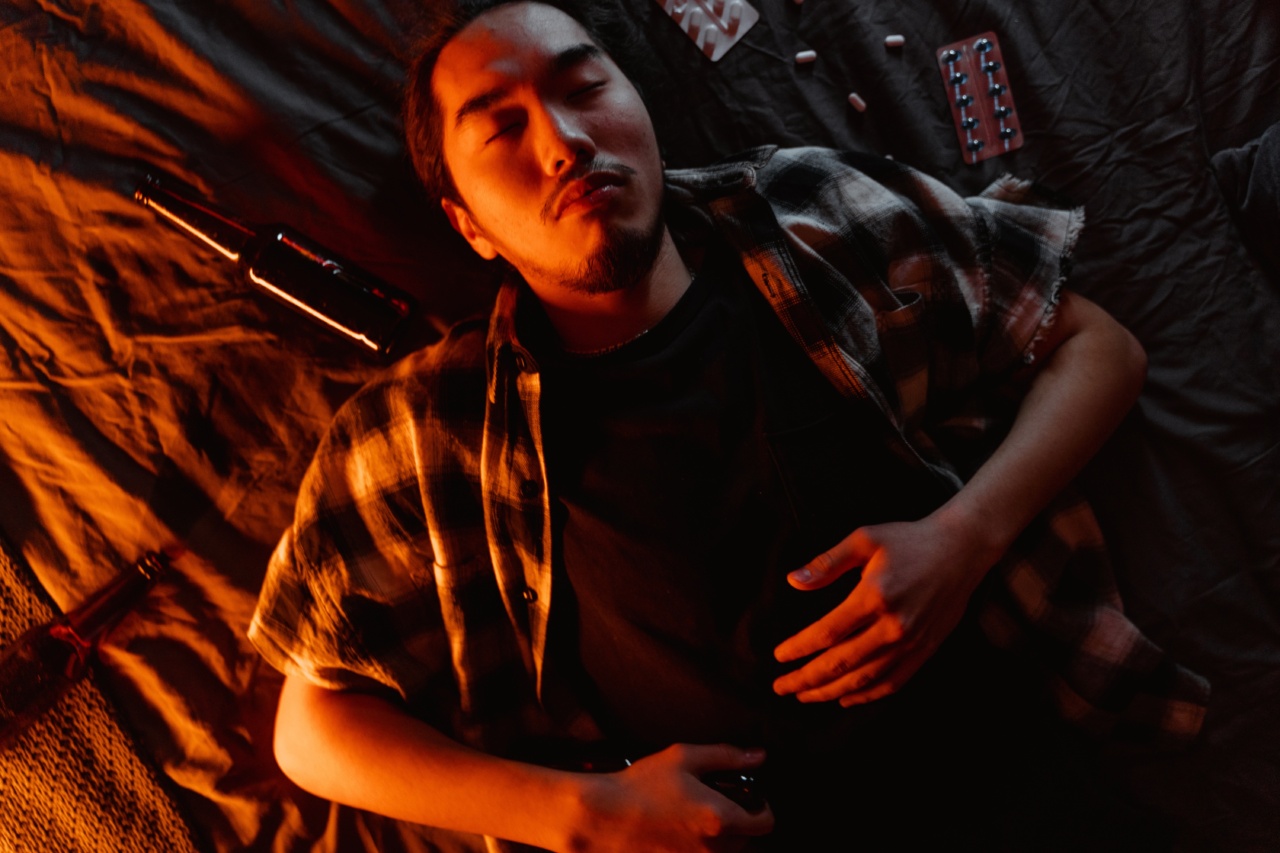Sleep is an essential part of our daily routine. It helps us to recharge our bodies and minds, and prepares us for the next day.
However, many people find it difficult to fall asleep, or have poor quality sleep, leading to fatigue, stress, and other health problems. While hypnotic pills are commonly used to treat insomnia, they can have side effects and long-term consequences. Luckily, there are natural ways to improve your sleep quality and quantity.
Here are some tips to help you get a good night’s sleep without hypnotic pills:.
1. Stick to a Routine
Your body has a natural clock called the circadian rhythm, which regulates your sleep-wake cycle. By sticking to a consistent sleep routine, you can help your body to sync with this rhythm and improve your sleep quality.
Try to go to bed and wake up at the same time every day, even on weekends. Avoid napping during the day if you have trouble falling asleep at night.
2. Create a Sleep-Conducive Environment
Your sleeping environment plays a crucial role in your sleep quality. Make sure your bedroom is cool, dark, and quiet. Use blackout curtains or an eye mask to block out light, and earplugs or white noise machine to mask sounds.
Invest in a comfortable mattress and pillows that support your body posture. If you share your bed with someone who snores or moves a lot, try sleeping in separate beds or rooms.
3. Limit Your Exposure to Screens Before Bed
Electronic devices emit blue light, which can suppress the production of melatonin, a hormone that regulates sleep. Using your phone, laptop, TV, or other devices before bed can disrupt your sleep-wake cycle and make it harder to fall asleep.
Try to avoid screens at least one hour before bedtime. Instead, read a book, take a warm bath, or practice relaxation techniques like deep breathing or meditation.
4. Watch Your Caffeine and Alcohol Intake
Caffeine is a stimulant that can keep you awake and alert, even hours after consumption. Avoid drinking coffee, tea, soda, or energy drinks in the afternoon or evening. If you need a pick-me-up, choose decaf or herbal tea instead.
On the other hand, alcohol is a sedative that can make you drowsy and relaxed, but it can also disrupt your sleep cycle and cause frequent awakenings. Limit your alcohol intake, especially before bedtime.
5. Exercise Regularly, but Not Before Bed
Physical activity can improve your sleep quality and reduce stress and anxiety, but it should be done at the right time. Exercising too close to bedtime can increase your heart rate, body temperature, and alertness, making it harder to fall asleep.
Try to finish your workout at least two hours before bedtime. If you can’t do intense exercise, go for a walk, do yoga, or stretch before bed.
6. Manage Your Stress and Anxiety
Mental and emotional stress and anxiety can keep you up at night, making it harder to unwind and fall asleep.
Find healthy ways to manage your stress and calm your mind, such as journaling, talking to a friend, practicing mindfulness, or seeking professional help. Avoid watching or reading news or social media that can trigger negative emotions before bed.
7. Consider Natural Remedies and Supplements
Some natural remedies and supplements can help improve your sleep quality and quantity, but it’s important to talk to a healthcare professional before trying them. Examples include:.
- Melatonin: a hormone that regulates the sleep-wake cycle and can help you fall asleep faster and stay asleep longer.
- Lavender: a herb that has calming and sedative properties and can help reduce anxiety and improve sleep quality.
- Valerian: a root that has been used as a sleep aid for centuries and can help promote relaxation and reduce stress and anxiety.
- Chamomile: a flower that has mild sedative effects and can help reduce insomnia and promote relaxation.
8. Don’t Force Yourself to Sleep
Trying too hard to fall asleep can actually make it harder. If you can’t fall asleep after 20-30 minutes, get out of bed and do a relaxing activity until you feel sleepy, then try again.
Don’t watch the clock or stress about the time, as this can create a negative cycle of worrying and sleeplessness.
9. Keep a Sleep Diary
Monitoring your sleep patterns and habits can help you identify what works and what doesn’t, and make adjustments accordingly.
Keep a sleep diary for a week or two, tracking when you go to bed, when you wake up, how long it takes you to fall asleep, how many times you wake up during the night, and how you feel in the morning. This can help you and your healthcare provider to diagnose and treat any sleep disorders.
10. Seek Professional Help if Necessary
If you have chronic insomnia or other sleep disorders, or if your sleep problems persist despite lifestyle changes and natural remedies, it’s important to seek professional help.
Your healthcare provider can perform a sleep study to diagnose and treat underlying medical conditions that affect your sleep, such as sleep apnea, restless leg syndrome, or narcolepsy. They can also prescribe medication or therapy to help you sleep better.
In conclusion, improving your sleep quality and quantity without hypnotic pills is possible with some simple lifestyle changes, natural remedies, and professional help if necessary.
By sticking to a routine, creating a sleep-conducive environment, limiting your exposure to screens before bed, watching your caffeine and alcohol intake, exercising regularly, managing your stress and anxiety, considering natural remedies and supplements, not forcing yourself to sleep, keeping a sleep diary, and seeking professional help if necessary, you can enjoy better sleep and better health.































